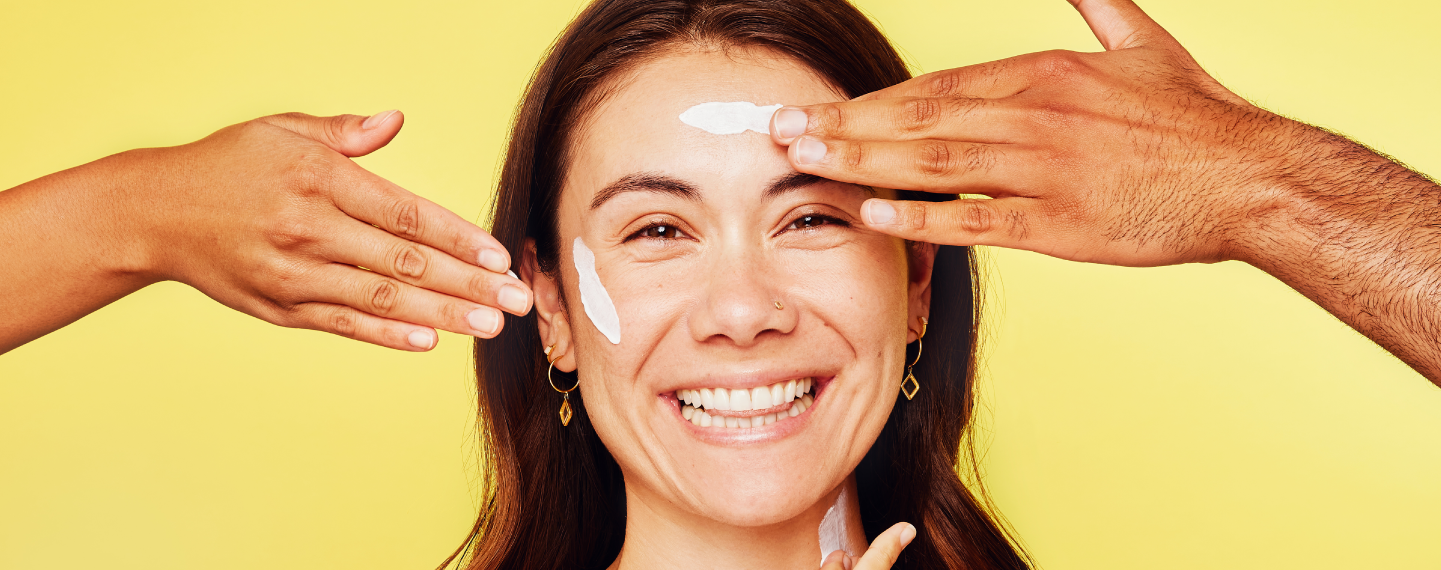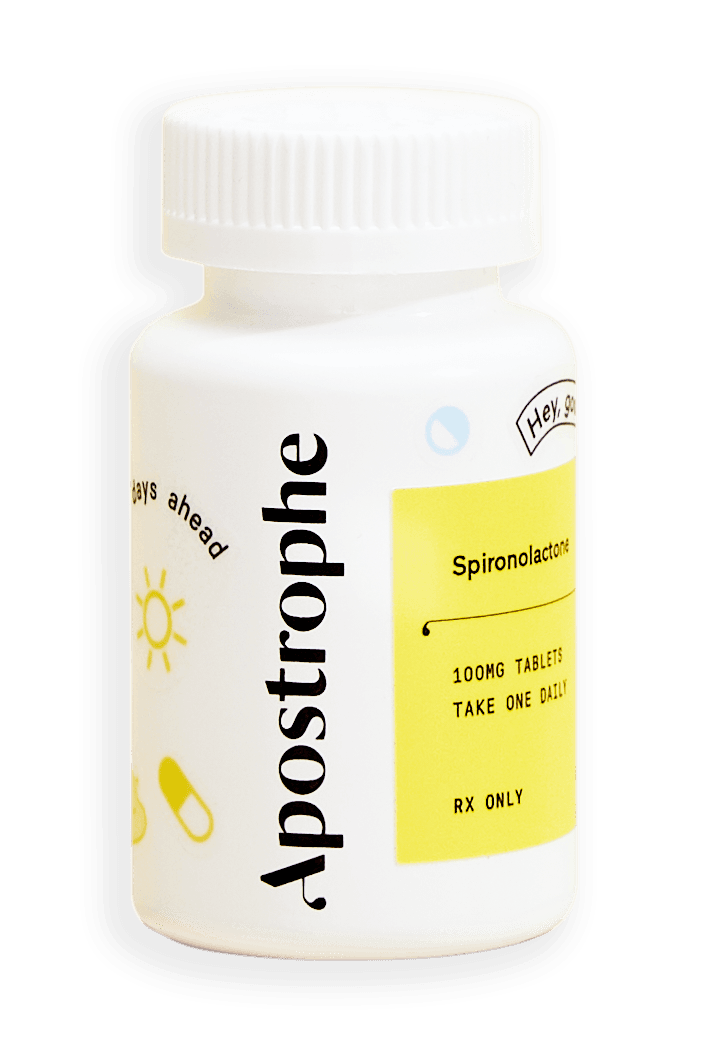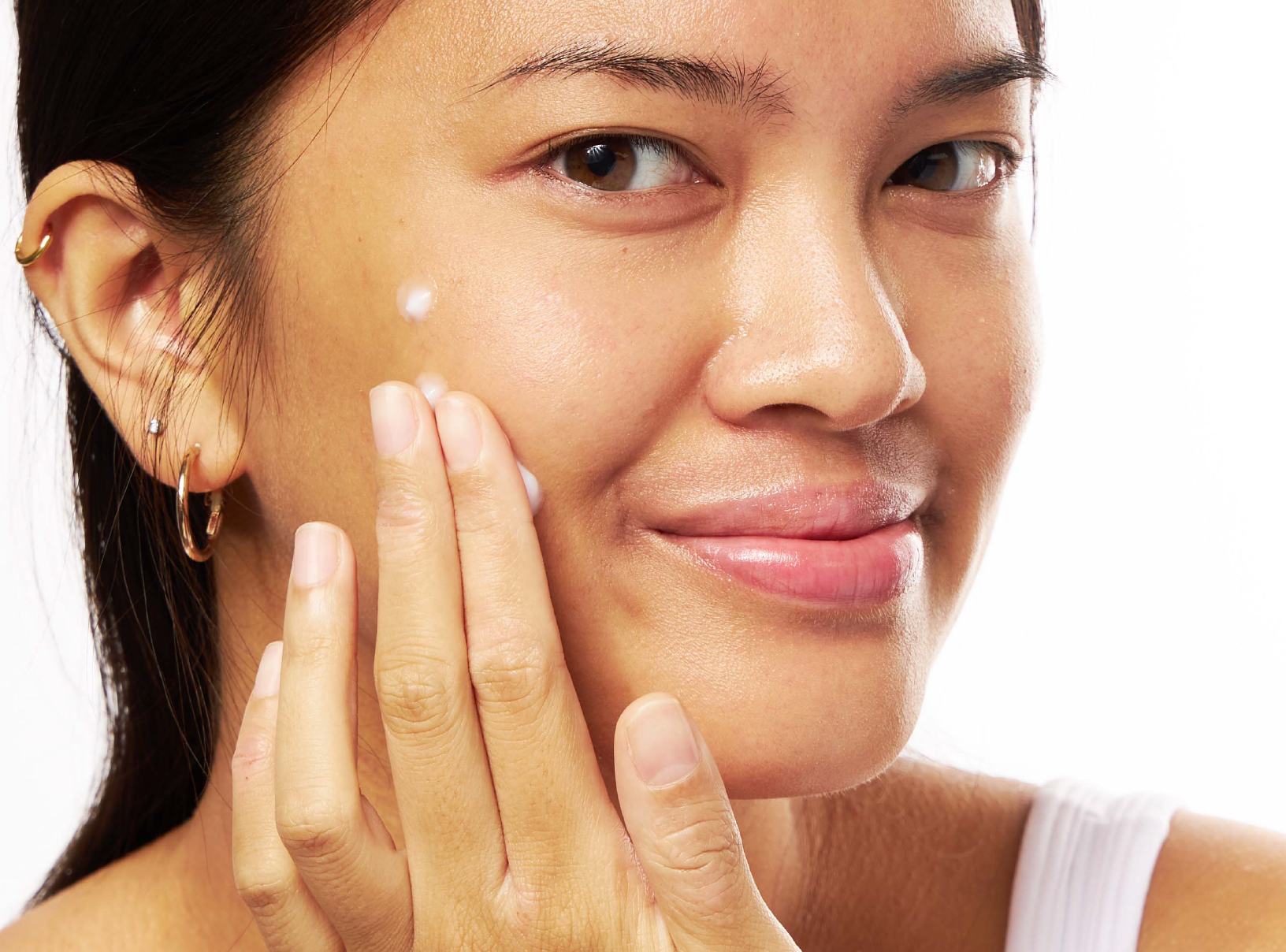Education
Face mask for acne


SHARE
Education
Face mask for acne
Medically reviewed by Kristin Hall, FNP
Written by Apostrophe Team
Last updated 11/3/2024
You see them all over social media and hanging from racks in the drug store check-out line. Face masks aren’t new, but they’re newly popular, and like many trendy products, it’s hard to know if they’re worth the hype.
Living with acne is no walk in the park. It can be painful — both physically and emotionally. And when new products hit the market, it can be tempting to rush out and try them all — anything that might provide some relief.
When it comes to face masks, the lure is a simple, trendy, low-cost solution. But like so many other bottles in your bathroom, buying face masks for your acne-prone skin could be futile.
But what about pandemic-preventing face masks?
A quick sidebar: If you’re here because you’re concerned about wearing a face mask over your nose and mouth to prevent getting or spreading illness, but don’t want it to cause pimples, we have you covered.
What are face masks?
They’re everywhere. And while your mother’s generation may have only used mud or rinse-off masks, cosmetic facial masks today also come in sheet masks, peel-offs, and hydrogels. You can find them online or in nearly any cosmetics aisle.
Face masks are marketed towards numerous skin conditions, based largely on the ingredients they include. These ingredients may include moisturizers, vitamins and minerals, herbal ingredients, exfoliants, lightening ingredients, and more.
The primary premise of face masks is that they increase the absorption of their ingredients into the skin, over a basic moisturizer or topical face product, by preventing evaporation.
Do popular face masks work for acne?
The short answer to this is: There aren’t any high-quality scientific studies evaluating the effectiveness of face masks on acne. That doesn’t necessarily mean that they don’t work.
If you’re interested in trying a mask for your acne, you’ll want to pay particularly close attention to the ingredients within. A mask made to dramatically moisturize, as many masks claim to do, wouldn’t be appropriate. But one designed to assist in exfoliation or drying excess oil, may. In addition to masks that specifically say they’re designed for acne or reducing breakouts, the following terms listed on a face mask package could indicate some anti-acne properties:
Green tea may have anti-inflammatory or antioxidant properties
Parsley may help to control oil
Clay has skin moisturizing and cleansing properties and may also assist in the treatment of mild acne.
Exfoliants can reduce dead skin cells known to block pores
Skin lightening ingredients may also contain helpful properties
To be clear: There is no scientific proof that a mask containing parsley or made with clay will cure your acne. But these qualities could make them appropriate for acne-prone skin. There’s always the chance, however, that additional ingredients in the mask could irritate or worsen your acne. So, buyer beware.
Above and beyond trendy face masks, there are several acne treatment options that are proven effective. So while trying a face mask — similar to a new cleanser or toner — isn’t likely to be detrimental to your skin care regimen, your money, and effort are likely better spent on those things with strong scientific backing.
Proven acne treatment options
Talking with a healthcare provider or dermatologist about your acne could be a quicker way to find relief for your skin condition. There are numerous treatment options available over the counter and with a prescription. These may include:
Benzoyl peroxide: Found at drug stores, benzoyl peroxide is a treatment known to reduce acne.
Retinoids: Retinoids such as tretinoin are available with a prescription and are commonly used treatments for acne.
Oral antibiotics: Taking antibiotic medications can also assist in the treatment of acne, and they’re often prescribed in conjunction with topical products like retinoids.
Oral contraceptives: If your acne seems to worsen with your menstrual cycle, birth control pills may help regulate your hormones and treat your acne.
Spironolactone: Like birth control pills, spironolactone affects your hormones, and may be appropriate for women with excess androgens (male hormones).
There are numerous other treatment options both within these categories and without. Discussing your medical history and the characteristics of your acne with a healthcare provider will help you choose the treatment option most likely to work for you.
References
Shop this post

Oral Spironolactone
Like what you just read? Sign up for our email list to get the scoop on skincare science delivered straight to your inbox.

Deep Dives
A dermatologist shares his thoughts on the recent studies about benzoyl peroxide and benzene.
Read More
Education
What is milia?
What is milia? Today, we’re jumping into one type of bump that you may have heard about most commonly in infants — milia.
Read More
Education
Best moisturizer for acne-prone skin
If you have combination acne-prone skin, figuring out which moisturizer is best for your skin might be tough. In this guide, we break down the best moisturizer for combination, acne-prone skin.
Read More
